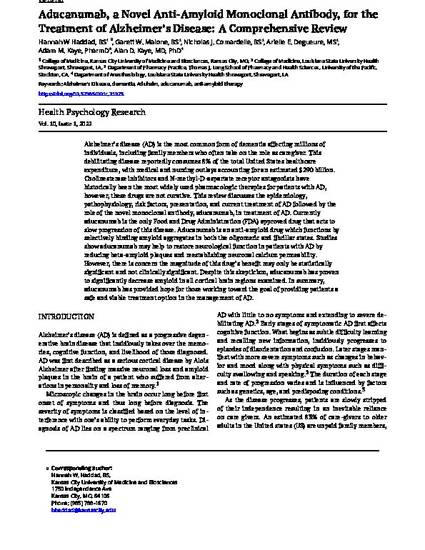
Alzheimer’s disease (AD) is the most common form of dementia affecting millions of individuals, including family members who often take on the role as caregiver. This debilitating disease reportedly consumes 8% of the total United States healthcare expenditure, with medical and nursing outlays accounting for an estimated $290 billion. Cholinesterase inhibitors and N-methyl-D-aspartate receptor antagonists have historically been the most widely used pharmacologic therapies for patients with AD, however, these drugs are not curative. This review discusses the epidemiology, pathophysiology, risk factors, presentation, and current treatment of AD followed by the role of the novel monoclonal antibody, aducanumab, in treatment of AD. Currently aducanumab is the only Food and Drug Administration (FDA) approved drug that acts to slow progression of this disease. Aducanumab is an anti-amyloid drug which functions by selectively binding amyloid aggregates in both the oligomeric and fibrillar states. Studies show aducanumab may help to restore neurological function in patients with AD by reducing beta-amyloid plaques and reestablishing neuronal calcium permeability. However, there is concern the magnitude of this drug’s benefit may only be statistically significant and not clinically significant. Despite this skepticism, aducanumab has proven to significantly decrease amyloid in all cortical brain regions examined. In summary, aducanumab has provided hope for those working toward the goal of providing patients a safe and viable treatment option in the management of AD.
Available at: http://works.bepress.com/adam-kaye/158/
